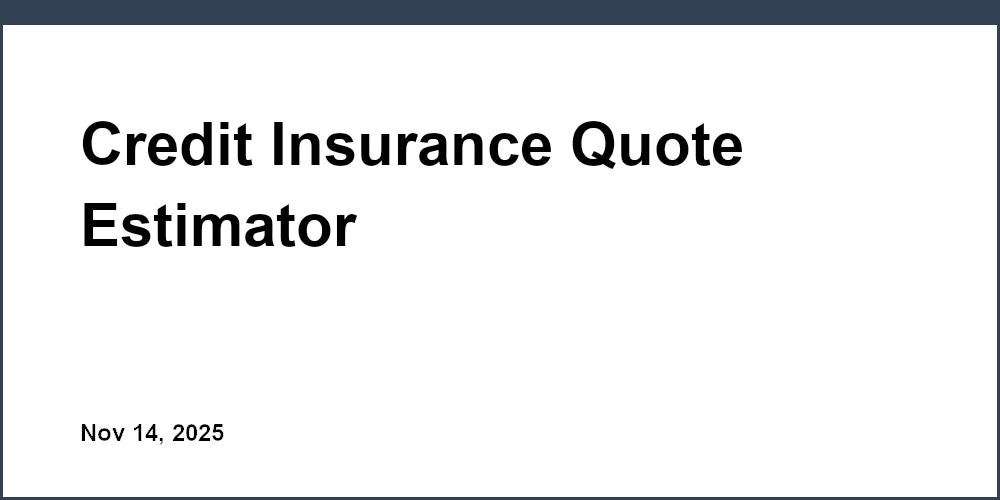Understanding Credit Insurance Costs for Your Business
Running a small or medium-sized business often means juggling cash flow while waiting on client payments. That’s where trade credit protection comes in—a way to shield your company from the financial hit of unpaid invoices. If you’ve ever wondered about the cost of safeguarding your accounts receivable, tools like a credit insurance quote estimator can offer clarity without the hassle of lengthy consultations.
Why Consider Credit Insurance?
Every industry faces unique risks. A manufacturer might deal with delayed payments from distributors, while a retailer could face seasonal slumps. No matter your niche, unpaid debts can disrupt operations or even threaten survival. Estimating the potential expense of coverage helps you weigh the benefits against your budget. It’s not just about protection; it’s about planning for stability.
How Estimates Work
Online calculators factor in details like your revenue, industry risk, and desired coverage to provide a rough premium range. While not a final quote, this insight lets you explore options at your own pace. Curious about protecting your business? A quick estimate can be the first step toward peace of mind without committing to anything just yet.
FAQs
What exactly is credit insurance, and do I need it?
Credit insurance protects your business if a client fails to pay what they owe, whether due to bankruptcy or other issues. It’s especially handy if you rely on a few big customers or work in industries with longer payment terms. Think of it as a safety net for your cash flow—without it, one bad debt could really hurt. If a big chunk of your revenue is tied up in accounts receivable, it’s worth considering.
How accurate is this credit insurance quote estimate?
Our estimator gives you a ballpark figure based on standard industry risk profiles and the data you provide, like revenue and coverage level. It’s a solid starting point to understand potential costs, but keep in mind that actual quotes from insurers might differ. Factors like your specific credit history or client base could tweak the final number. Use this as a guide, then chat with a provider for the real deal.
What factors influence my credit insurance premium?
Several things play a role in the cost. Your industry matters—construction might carry higher risk than retail, for example. Then there’s your annual revenue and the size of your accounts receivable; bigger numbers often mean higher premiums. The coverage level you pick also shifts the price—90% coverage costs more than 70%. Lastly, insurers look at your customer base and payment history, though our tool uses general data for estimates.


